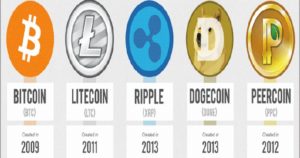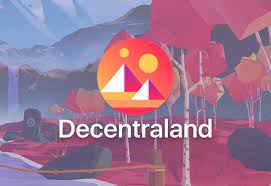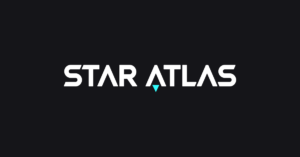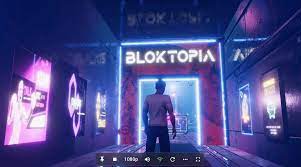Blockchain Technology Support Metaverse Economy will be described in this article. Blockchain’s Place in the Decentralized Economy and the Metaverse. A user accessing the metaverse with VR glasses
With the advancement of blockchain technology, many ideas that were once just hypotheses are becoming to materialise. The “metaverse,” a virtual environment, is one of them. What impact will this world have on the online economy and the conventional internet?
Neal Stephenson introduced the concept of the metaverse, a virtual world with all the possibilities of a real one, in his science fiction book “Snow Crash” back in 1992. The concept was merely a pipe dream in the early 1990s, but with the evolution of blockchain technology, it has found use in very particular projects that have already attracted millions of people worldwide.
Blockchain Technology Support Metaverse Economy
In this article, you can know about Blockchain Technology Support Metaverse Economy here are the details below;
A completely functional economy inside the virtual world where you may buy and sell any virtual assets has been created thanks to cryptocurrencies and NFTs. A select few individuals have already been successful in making large sums of money through the sale of digital artwork, virtual properties, and other items. Unsurprisingly, a lot of specialists are very interested in this field and are adamant that the blockchain and metaverses will transform the Internet and the digital world.
Understand everything there is to know regarding the metaverse and its prospects by reading this article.
What is the metaverse and how does it realte to blockchain?
The word “metaverse” today describes a virtual world built within the new Internet employing 3D technologies. This idea has direct connections to recent technological advancements like blockchain, augmented and mixed reality, NFT, and many more. In the metaverse, users are engaged in a virtual world where they may carry out all of their daily activities, including travelling to fascinating places, meeting new people, purchasing pieces of art, and selling real estate. According to experts, building a blockchain-based metaverse can unleash a fantastic virtual environment that will transform how everyone involved interacts.
So what does the idea of the metaverse have to do with blockchain? Today, a number of blockchain-based platforms use cryptocurrencies and so-called non-fungible tokens, establishing an ecosystem for the creation, ownership, and monetization of decentralised digital assets. The idea of the metaverse is incomplete without blockchain because of all the problems with centralised data storage. The metaverse is fundamentally different from the capabilities of the traditional internet, which of course takes the shape of websites and applications, in that blockchain can operate globally as a digital source functioning on the principle of decentralisation. Any digital place can be accessed through the blockchain-based metaverse without the influence of a centralised authority.
Our IT experts have created a video that explains the major concepts of the sophisticated trend in more detail if you want to learn more about the metaverse. This thorough introduction will provide you a greater understanding of the metaverse’s operation, the technology it depends on, and the commercial prospects available to you.
Why blockchain is the key technology for the metaverse
The fundamental operating principles of the ecosystem have already been devised, even though there is still no singular notion of the metaverse and the concept itself is only partially implemented in initiatives like the metaverse Facebook Horizon and Google Blocks.
Hardware and software are the two major parts of any metaverse. Users may comfortably engage with virtual or augmented reality thanks to the hardware component, which incorporates all common controller kinds. In the case of software, we’re referring to a digital setting where the user has access to content.
The majority of those in the sector now concur that software should be built on blockchain technology, which stands for a secure decentralised database where independent nodes can communicate in a single, constantly updated network. Once you consider the most crucial aspects of blockchain technology, it becomes rather clear that it can satisfy the needs of the metaverse. They are listed below:
Security. The exabyte-scale data storage of the metaverse presents concerns about secure transmission, synchronisation, and storage. In this view, the decentralisation of data processing and storage nodes makes blockchain technology extremely pertinent.
Trust. Blockchain requires the existence of tokens, which are safe storage units capable of conveying things like encrypted personal data, virtual content, and authorization keys. Because sensitive data won’t be accessible to outside parties, the metaverse blockchain fosters greater user confidence in the ecosystem.
Decentralization. All participants must see the same virtual reality for the metaverse to function properly. Thousands of independent nodes can synchronise in a decentralised environment powered by blockchain technology.
Digital contracts. Through these, relationships between ecosystem players within the metaverse can be efficiently regulated in terms of economic, legal, social, and other factors. Additionally, smart contacts let you create and put into action the fundamental guidelines for the metaverse’s governance.
Interoperability. Blockchain makes it possible for numerous systems and interfaces to work together seamlessly and interoperably. When it comes to NFT valuation & turnover, this is very important.
relational finances. Because it is an essential component of the blockchain, cryptocurrency can function as a reliable substitute for fiat currency. It is also a useful tool for doing settlements between parties in the metaverse.
It is clear that centralised ecosystems pose significant hazards to the development and operation of the virtual world. These include malware, hacking, and even centralised decision-making that affects how the metaverse works. However, the dangers are reduced with blockchain technology, making it feasible to create a reliable virtual ecosystem.
Overview of blockchain use cases in the metaverse

Blockchain has many potential uses in creating and managing the metaverse. The principal applications of this technology are illustrated below.
In-game assets
According to many blockchain specialists, gaming will soon be the sector where the idea of the metaverse really takes off. They forecast that non-fungible metaverse tokens will be used to represent the virtual assets used by players, and that over time, games will allow users to amass real money that can be used as payment inside a particular ecosystem.
Because of the integration of blockchain technology, players’ assets will remain secure even if they quit the game, delete it, or suffer some other negative life event.
A significant amount of money is being invested here, and experts in cutting-edge technology are actively investigating this market. The game “The Sandbox,” which is a virtual environment with an integrated Ethereum-based cryptocurrency, is the best example of a ground-breaking innovation. It’s interesting to note that the Sandbox metaverse ecosystem already includes some of the most well-known businesses from the real world.
With over a million active players, “Axie Infinity” is one of the most played current metaverse NFT games. This game has the unique feature of rewarding players with an internal currency that encourages new players to sign up.
The majority of influential people, including Mark Zuckerberg, the creator of Facebook (now Meta), are certain that the metaverse will be actively employed by investors, developers, and everyday users in the upcoming years. We can confidently forecast that this idea will become increasingly popular soon. This is another blockchain technology support metaverse economy. Also check window 10 update error 0x80003ee
Learn more about GameFi, a revolutionary trend that combines gaming with decentralised finance driven by blockchain.
Virtual currencies

One of the most obvious applications of blockchain technology in the metaverse is settlements. The time when consumers shop online is quickly approaching. We can be confident that cryptocurrencies will soon find use in a decentralised ecosystem because consumption is continually rising and offline trading is progressively giving place to internet businesses.
MANA, which is used to purchase virtual property in the game “Decentraland,” is one of the metaverse instances of how virtual currencies are used in the metaverse. Within this metaverse, deals worth millions of dollars are already being completed, and this is only the beginning. Users will soon be able to purchase virtual replicas of anything that can now be purchased in the real world. This technology won’t be restricted to just video games; the rapidly growing DeFi market could wind up serving as a beta-testing environment for metaverse lending, borrowing, investing, and trading services. As a result, the potential of cryptocurrencies is theoretically limitless.
NFTs
Numerous analysts predict that non-fungible tokens will play a significant part in the metaverse. These tokens, which are currently often used in digital art transactions, will serve as evidence of ownership of digital assets. NFTs also have a huge potential for integration into any metaverse crypto initiatives involving the purchase of avatars, game assets, and other such items. Non-fungible tokens will also soon be utilised as evidence of real estate ownership if this field keeps growing.
An NFT is, broadly speaking, a key to accessing particular regions of the metaverse (in other words, the freedom to control a particular part of the virtual environment). Additionally, tokens will eventually be used as a reward in metaverse NFT games (instead of fungible tokens). Since practically any digital asset can be copied an infinite number of times, non-fungible tokens will be used to assign value to specific digital assets. Only a certificate of ownership integrated into a digital object can verify the right of the legal owner.
Self-Identity authentication

Self-identity authentication in the metaverse is carried out similarly to how a social security number is assigned. The blockchain stores all information about a particular user, including their age, activities, attractiveness, and other traits. As a result, the metaverse is kept as transparent as possible and is free from criminal activity. Also check CMS Platforms
Self-identity authentication also gets rid of the chance that someone would use a phoney name in the virtual ecosystem to commit crimes.
Real estate
One of the most important digital assets in the metaverse is real estate. If the metaverse truly does represent an endless digital space, the main issues here are how to evaluate a virtual real estate object and how to control this market. The metaverse blockchain can be used in this situation as a kind of registry to keep track of all operations carried out on virtual real estate assets, such as creation, modification, acquisition, sale, and disposal.
In conclusion, it is evident that even while the blockchain and the metaverse have been evolving as separate ideas, their combined potential can only be completely realised through integration. The concepts’ complimentary roles will eventually combine to produce a synergetic impact, causing people to notice something fundamentally different and altering how they view virtual reality and the crypto metaverse.
Do you actually need blockchain for building the metaverse?
Yes. Blockchain technology is essential to the metaverse because it allows users to safeguard their digital assets in virtual reality. Real blockchain initiatives like “Axie Infinity” and “The Sandbox” emphasise this concept. They both concern the metaverse. By using the metaverse cryptocurrency, users can build and trade NFTs, as well as profit from the local economy. This is another blockchain technology support metaverse economy.
Without blockchain technology, experts agree that the concept of a fully functional virtual ecosystem cannot be realised. This is due to the fact that, as we’ve mentioned, consumers must be allowed to safely own and sell their digital property by transferring assets between the platforms without a centralised authority’s consent. For instance, “The Sandbox” game’s virtual property can be sold profitably outside the metaverse (on the corresponding exchanges). According to experts, the value of digital assets is dramatically diminished when they cannot be moved outside of a certain ecosystem.
The blockchain is now an essential technology that enables you to precisely identify any virtual object without involving a centralised organisation. The secret to creating a fully developed metaverse is for every member of the ecosystem to be able to recognise a digital asset and monitor its ownership inside the decentralisation logic.
A local economy is essential to the metaverse. This contributes to the justification for the unavoidable incorporation of metaverse crypto. Blockchain guarantees the economic efficiency and transparency of this metaverse market. It is crucial to employ trustworthy algorithms while building virtual reality in order to replace real assets with digital ones. In this regard, the metaverse blockchain is essentially the only technical solution that could right now offer the required degree of confidence in metaverse economic transactions.
In addition, the ability of blockchain to unite many ecosystems emphasises how crucial this technology is for introducing the idea of the metaverse.
Introduce Echo, a cutting-edge blockchain ecosystem with bridges in the DeFi manner.
The top 5 cryptocurrency and blockchain initiatives in the metaverse
Top five blockchain initiatives in the metaverse, including Bloktopia, The Sandbox, Enjin, Star Atlas, and Decentraland
Many developers are currently integrating the metaverse idea into actual blockchain enterprises. The top 5 blockchain ecosystems are shown below.
The Sandbox

This is another blockchain technology support metaverse economy. This NFT game is currently quite well-liked. It started off as a simple mobile app but over time transformed into a sophisticated Ethereum-based metaverse with a unique SAND token. In order to manage non-fungible tokens, an internal currency (SAND), and a variety of other assets, users create an avatar that connects to an e-wallet. The game incorporates a “play-and-earn” approach meant to boost the local economy even more. Also check fix update errors
Decentraland

Users can create avatars, purchase and equip land plots, plan different events, and produce digital material in this 3D metaverse. The blockchain, which permits digital identification and ownership confirmation of in-game goods, powers the home economy of Decentraland. Virtual real estate serves as the game’s primary digital asset (LAND). Additionally, the metaverse contains a native ERC-20 cryptocurrency token (MANA) that is utilised internally by the players for settlement. This is another blockchain technology support metaverse economy.
Star Atlas

One of the most recent creations integrating blockchain technology from the metaverse and DeFi is called “Star Atlas” in the metaverse. In “Star Atlas,” players can buy virtual resources like land, spacecraft, gear, and crew. The foundation of the in-game economy, the POLIS monetary system, has also been unveiled. Experts think Star Atlas has a lot of potential given the numerous innovations used in its development.
Enjin

This is another blockchain technology support metaverse economy. The idea of the metaverse is implemented in a distinctive way by Enjin. It uses the blockchain as its operating system, but it also provides chances for software development and SDK for the quick production of NFT. It makes use of a protected NFT development platform built on Ethereum. The method converts Enjin NFT into ENJ metaverse tokens to further ensure that digital assets are extremely liquid. Furthermore, ENJ tokens maintain their worth and collectability because they are hard to come by.
Bloktopia

On top of the Polygon blockchain, Bloktopia is an example of a metaverse where you may learn, make money, play games, and create all in virtual reality. Through the internal metaverse token BLOK, Bloktopia has a built-in play-to-earn game and furthermore offers Adblok advertising opportunities. Additionally, it gives you the option to build your own immersive gaming environments, play a variety of games in the metaverse, and sell real estate via Reblok. This is another blockchain technology support metaverse economy.
View the gaming applications we’ve successfully released for our clients.
Metaverse and Web 3.0: are they the same?
Web 3.0 is a crucial idea in relation to blockchain and the metaverse. Web 3.0 and the metaverse are now frequently used as synonyms. These are two distinct ideas, even though they both centre on creating a better, future internet.
While Web 3.0 is focused on who will own and control it. Its main objective is to address Web 2.0’s weaknesses, such as data leaks and privacy concerns. Blockchain will be used in Web 3.0 to promote decentralisation and give consumers ownership and control over their data.
Although Web 3.0 is still in its infancy, several of its components are already in use, such as non-fungible tokens that use blockchain technology to enable people monetize their skills in novel ways and play-to-earn games that let players make money while they play.
Although some contend that Web 3.0 is a crucial component of the metaverse, it is but one part of a larger whole.
Conclusion
Although there are many different interpretations of the metaverse notion, practically all experts concur that it is a niche with enormous potential. It has the potential to generate excellent returns for investors. The fundamental components of the metaverse, such as digital proof of ownership, money transfer, governance, accessibility, and interoperability, all plainly require blockchain as a necessary technology. Choosing a project that people will like and that will draw in new participants is the main problem because doing so will raise the project’s capitalization and the worth of any digital assets linked to a certain metaverse.
The creation of virtual property is just one of the many methods to make money in the metaverse, in addition to purchasing and selling collections of metaverse NFTs. Please feel free to come out to us right away, and we’ll provide you with detailed professional advise on the investing opportunities in this fascinating industry.

